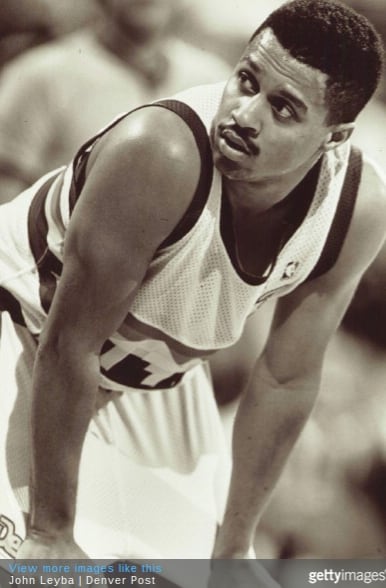Thank God for Mahmoud Abdul-Rauf.
I never expected to utter those words, but they summed up my reflection on Acts of Faith by Eboo Patel, which I read to participate in Loyola University Chicago’s reading program for first-year students. The book examines the origins of religious extremism and imagines ways we might prevent it.
Patel begins by exploring the background of the London transit bombers and later considers how Osama bin Laden came to be a terrorist. But Patel’s thesis applies to all religious extremists — be they Christian, Hindu, Jewish, Muslim, or anything else. Hateful people, he argues, are not born hateful. On the contrary, extremist leaders win followers by taking advantage of young people’s natural insecurities and offering them a strong identity and ideology, usually based on hatred of a dominant enemy. Patel suggests that youth would be less likely to fall into extremism if mainstream religion did a better job of engaging them. He asks on more than one occasion: What if good and healthy religious leaders had reached the terrorists first?
Patel’s book led me to think about my own relation to extremism. The events of September 11, 2001 led some to define Islam as the enemy, just as bin Laden’s followers identified their enemy as the West. In fact, I remember hearing anti-Muslim comments within my own extended family.
Thankfully, Mahmoud Abdul-Rauf — and my parents — got to me first.
I encountered Abdul-Rauf in a computer game, NBA Full Court Press, which came out for Windows in 1996. I idolized Michael Jordan, Scottie Pippen, and the Chicago Bulls, so I usually played with them.1 My dad always played with his hometown team, the Denver Nuggets. The Nuggets were terrible, but they had one fascinating player: Abdul-Rauf.
Abdul-Rauf stuck out for several reasons. In the midst of a bunch of generic-looking players — this was Windows 95, after all — Abdul-Rauf had a beard. And his name was unfamiliar. As a six-year-old who had hardly gotten out of St. Louis, I didn’t know any Mahmouds, and I certainly didn’t know what to make of “Abdul-Rauf.” So I asked my dad about him, and my dad explained: Abdul-Rauf used to be Chris Jackson, but he changed his name when he became a Muslim. My dad explained that Muhammad Ali, whom I knew about, had also changed his name when he converted to Islam.
And so my first impressions of Islam began to form. Muslims played sports — and were good at them, too. Abdul-Rauf’s name stuck out in part because he scored a lot in Full Court Press.2 Like Jordan and Pippen, Abdul-Rauf and Ali were athletes I could look up to.
Perhaps more importantly, these guys — especially Abdul-Rauf — were normal. I played basketball; Abdul-Rauf played basketball. In a small way, he was just like me. And that made his name, his beard, his religion, and everything else seem more normal too.
Five years later, 19 Muslim men attacked my country, but I knew that wasn’t normal — for Islam or for anyone. It didn’t seem right to blame Islam. Certainly, it helped that my mom taught world religions. She assured me and my whole family that Islam does not promote terrorism. But her words built upon a foundation of pluralism that was already there, built by playing basketball with a normal (if virtual) Muslim.
- I dug out my old Jordan jersey as I prepared to move to Chicago. Now it hangs in my new room! ↩
- Apparently Abdul-Rauf was one of the greatest free-throw shooters in the history of basketball. ↩


